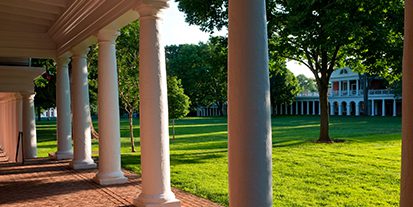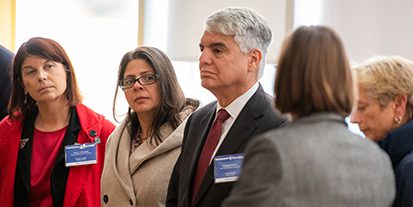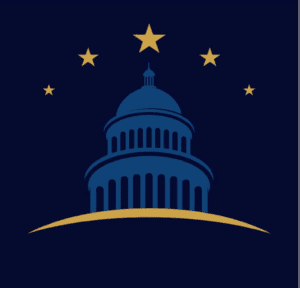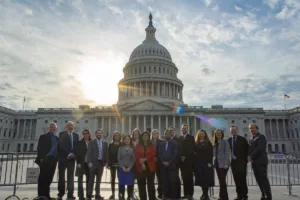June 30, 2022
Washington, D.C. – President Dr. John Mester spoke at GUIRR roundtable hosted by the National Academies of Sciences, Engineering and Medicine (NASEM) on June 29, 2022.
“URA is attempting to gather and amplify the views of our members in a way that informs the policy discussion and is useful to national level policy makers,” said Dr. John Mester, president of Universities Research Association (URA), to the NASEM co-chairs of National Science, Technology and Security Roundtable and invited guests.
Hosted by the NASEM, this sixth meeting of the Roundtable focused on balancing national security and research openness across private and public sectors and their respective partnerships. President Mester was invited to speak alongside academic and research leaders and to provide insight from his experience in academia and from working with URA member universities.
“If one is to truly balance the benefits of mitigating research security threats, it is crucial to understand the value that the research enterprise holds on our nation’s culture, economy, health and national security,” President Mester said as a panelist at the National Science, Technology and Security Roundtable.
One point President Mester emphasized was the talent pipeline of international students to U.S. research institutions. President Mester noted that international students account for a large percentage of the workforce within academic research and the STEM field which can be impacted if an open research culture is not preserved. This also extends to international collaborations such as the Fermilab’s DUNE LBNF.
In addition to safeguarding the talent pipeline, Mester also emphasized the importance of not overwhelming regulatory costs on researchers’ resources. To achieve this, Mester suggested close dialog between the security enterprise and university and research centers.
“Universities need to understand what information is valuable for security and the security establishment needs to understand the impact of new information requests,” Mester suggested. In addition, Mester explained the importance of scaling policies and processes to the response capacity of both big and small academic and research institutions.
An agenda and full list of speakers can be found here.






